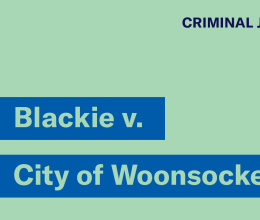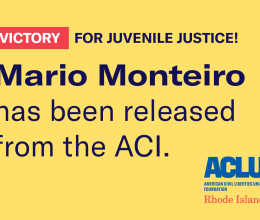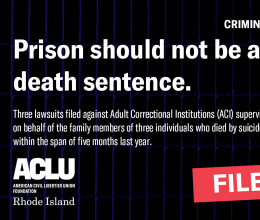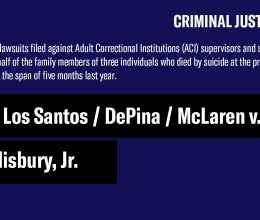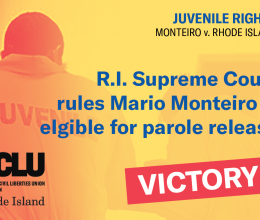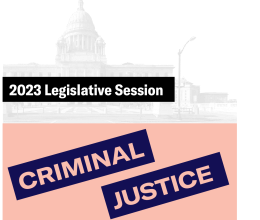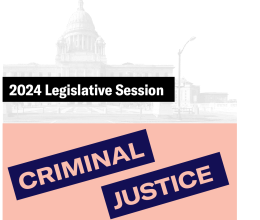The ACLU of Rhode Island joined with civil rights groups today to formally announce the introduction of comprehensive legislation in the General Assembly to address the widespread documented problem of racial profiling by police in traffic stops. The legislation, being sponsored by Rep. Joseph Almeida and Sen. Rhoda Perry, is the community’s formal response to a Northeastern University study released last summer which showed that the majority of police departments in the state routinely stopped black and Hispanic drivers for traffic violations much more often than whites, and searched their cars much more often as well, even though whites were more likely to be found with contraband when a search was conducted.
Among the groups participating in the news conference were the Urban League of Rhode Island, the R.I. Commission for Human Rights, the NAACP -- Providence Branch, the R.I. State Council of Churches, the R.I. Civil Rights Roundtable, R.I. Association of Affirmative Action Professionals (RIAAP), Direct Action for Rights and Equality (DARE), the R.I. Coalition for Affirmative Action (RICAA), and the Providence Human Relations Commission.
Some of the highlights of the thorough legislation include:
- An explicit ban on racial profiling by police and the inclusion of specific legal remedies, including damages, for victims of racial profiling.
- Restrictions on certain law enforcement practices that may encourage racial profiling. In particular, the bill bans both “pretext stops” and “consent searches.” The former term refers to the practice of police using a minor traffic violation as a pretext for pulling over a car for other reasons for which they do not have sufficient legal grounds to justify the stop. “Consent searches” refers to the practice of police obtaining the “consent” of a driver to engage in a car search under circumstances when the police do not otherwise have sufficient legal grounds for doing so.
- Continued traffic stops data collection by police departments, and authorization for another 24-month study of the data.
- Regular review of traffics stops data by police, both to insure that the traffic stops forms being submitted by officers are complete and accurate, and also to respond to any racial disparities that may readily appear through an examination of the data.
Onna Moniz-John, affirmative action officer for the City of East Providence and a member of the former Traffic Stops Study Advisory Committee said today: “It’s not enough to acknowledge that racial profiling exists. Now is the time to do something about it. This legislation should help police departments and the public to once and for all stop racial profiling.”


